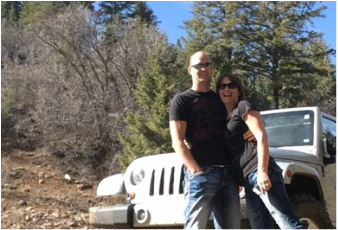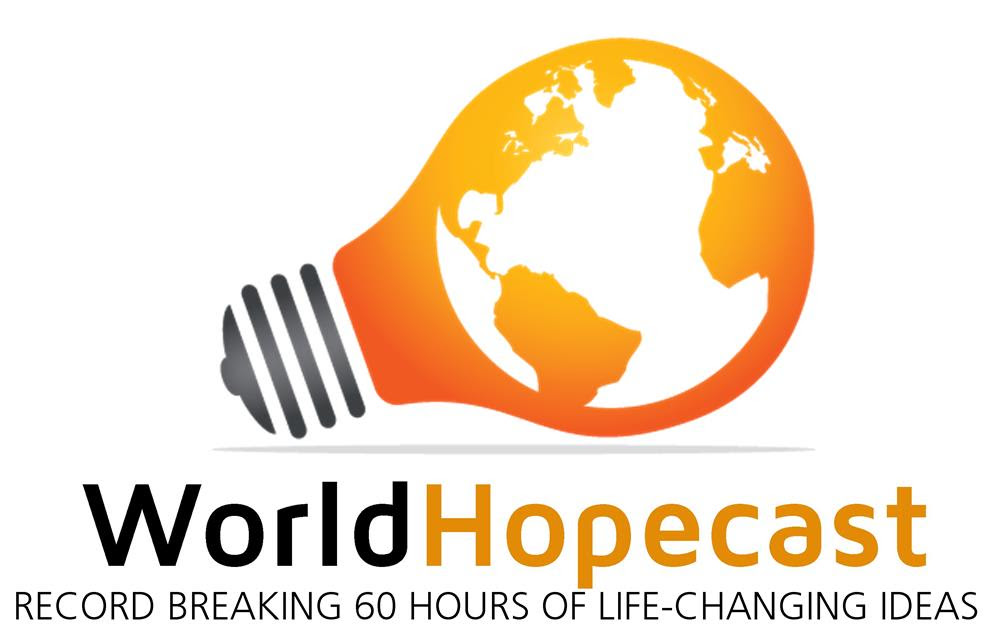|
Question:
My spouse hates her mother. She hasn't seen or spoken to her in nearly a decade and still says she is not ready to forgive her. I try to visit her mother with our kids when I can. My youngest is getting baptized and I invited her to his baptism and my wife is furious. I feel like the baptism is not about my wife; it's about my son and he wants his Grandma there. My wife is threatening to not attend the baptism. What should I do? I need help! Answer: See if you can get your mother-in-law to write a sincere apology letter to your wife. Make sure the letter honestly owns her mistakes and asks for forgiveness. Then give the letter to your wife along with this article. Tell her you reached out to me only because you didn’t know what else to do because you don’t want her to suffer anymore. Ask her to read it all and consider the possibility that she could feel differently. But, keep in mind that you can’t push your wife into forgiveness. It has to come from her heart in order to be real. She must change her mind to see this whole mess differently. All you can ask is that she be willing to read some things and think about it. It’s very important that she doesn’t feel judged by you for struggling with this. She has every right to be where she is. Your job is to forgive her for struggling to forgive her mom. We are all here (on earth) to learn and grow, and our main objective here is to learn to love ourselves, God and other people at a deeper level. If this is true, forgiving is the most important lesson. It’s easy to love people who are kind and good to us. Loving people who hurt us is a challenge that pushes us to the limits of our loving abilities. Forgiving your enemies makes you stretch and grow. If you are going to change how you feel about an offense, you must learn to look at the situation in a new way. I’m going to help you do that. You may feel like you aren’t ready, but "I'm not ready" is usually an excuse we use when we can't articulate the real reason we don't want to forgive. You must identify the real reason you don't want to forgive first, so you can work past it. Here are some possibilities:
Your other option is a forgiveness energy. Here you choose to forgive yourself and others, and completely let go of every misconceived, stupid, selfish, fear-based mistake either of you has ever made. You choose to see these mistakes for what they really are, bad behavior born of confusion, self-doubt, lack of knowledge, low self-esteem and fear. In this place, you choose to see everyone as innocent and forgiven (by God) and let them (and you) start over with a clean slate every day. If you choose this mindset, you will feel safe, loved, whole and good about yourself and this energy will be light, peaceful and happy. The question is: How do you want to live? You may also want to download some of the forgiveness worksheets on my website to help you change your perspective. You can do this.
0 Comments
Question:
I spend way too much time on social media. Every minute of down time I have to check what’s happening on Facebook, and I’m starting to feel that it runs my life. I should just cancel my account, but I get anxious when I even think about cutting back. I know it isn’t making me happier, and it’s probably adding to depression, since everyone’s life seems more fun and more successful than mine. Should I just give it up or is there a way to be part of it without it running my life? Also how can I be on it without feeling worse about myself? Answer: You probably have what is now being called FOMO: the Fear Of Missing Out. A recent JWT survey said 70 percent of adults have FOMO, and it causes a serious amount of stress and anxiety. Researchers at Edinburgh University said that one out of 10 Facebook users admit the site makes them anxious (and they feel an unhealthy amount of pressure to come up with inventive status updates and stay up to date on everyone's lives). But in spite of all of this, most people refuse to cancel their accounts. Facebook also makes many people feel depressed and inadequate. A study conducted by two German Universities found that Facebook created envy and an unhealthy level of social comparison in many users — yet we can’t stop looking at it. Most of us started using Facebook because we wanted to stay connected with other people, but now it feels like a competition where we must constantly prove our value and define our existence. There is no doubt life would be less stressful if you canceled your social media accounts. You would get more done and spend less time comparing yourself with others, but we all get why you can’t do it. You might miss something — and the fear of loss is a powerful force. The fear of missing out might show up in other areas of life, too. It may compel you to record every episode of your favorite show so you don’t miss it, even though your life would go on just fine if you missed it. You may buy things you don’t need if there is an amazing price for a limited time. You might even struggle with ordering in a restaurant, because you are afraid you might miss out on whatever you decide not to get. You may stay uncommitted on your weekend plans, because you want to check all the options before you commit. You might struggle with making all kinds of simple decisions because every choice means missing out on the other options. This fear could also cause problems in your relationships. You may hesitate to marry this girl or that boy, because you might miss out on someone better who could come along later. But, if you don’t marry that person and decide to wait for a better one, you might regret that and wish you’d taken this one. (This is FOMO at work, and it can create anxiety everywhere!) Here are a couple suggestions for easing FOMO and having a healthier mindset about social media:
You can do this. Tom Bodett, author and the radio host famous for his Motel 6 commercials, said, “A person needs just three things to be truly happy in this world: someone to love, something to do, and something to hope for.”
But for many these days, hope is hard to come by. According to the World Health Organization, suicide is now the third highest cause of death globally. Suicide rates have risen over 60 percent in the last 45 years and WHO estimates that by 2020, someone will die by suicide every 20 seconds on this planet. Right now in the U.S, there is one death by suicide every 12.3 minutes, and there are 25 attempts for every death. We also lose 22 veterans a day to suicide, and it is the second leading cause of death for young people 15-24. (In Utah we have about one suicide every 15 days). The bottom line is a lot of people are losing hope. Hope is a belief that something better is possible, that your life can and will improve. But some scientists say hope is more than just an emotion. It’s a state that one can choose, achieve or make happen if one knows how. In 1991, a positive psychologist named Charles Snyder and his colleagues came up with a hope theory that says hope consists of two components: agency and pathways. What they meant was, to create hope you must have some will, determination and belief that things can get better, and you must be able to see a path or vehicle to get you there. If you have both of these, you will have real and motivation driving hope. (Snyder and his colleagues also invented a worksheet to measure the amount of hope you have. It’s called the Trait Hope Scale and you can access it here if you’d like to try it.) Because of Snyder’s research, we know you can create more hope in your life if you work on these two things: 1 — Choosing a different (more positive) perspective or mindset. 2 — Developing strategies and a plan to actually improve your life. Here are some suggestions to help you change your mindset:
I also recommend you join us online (wherever you are) for the World Hopecast, taking place this week (March 17-19). We are bringing together a group of local speakers, celebrities and psychologists for a live stream audio broadcast (all about hope and inspiration) for 60 hours straight — with guest authors, activists, experts and thought leaders from around the world sharing messages of hope and positivity. We have guests lined up who will teach you exactly how to shift your mindset, inspire you with their stories of survival and motivate you to make a bigger difference in the world. We will be talking about suicide prevention, forgiveness, philanthropy, overcoming depression or illness, positivity and courage … and we are also going to break a Guinness World Record in the process. If you feel beaten up, burned out or overburdened please listen to the Hopecast live at www.worldhopecast.com. This was first published on KSL.COM
Question: I’ve been with my fiancé for 5 years now. In those 5 years, there has been some unfaithfulness and pain she has caused me several times. I will go for long periods of time where I can be happy and just love her but every so often that pain comes up again. Something small can remind me of the hurt she caused and I’m back to square one. I want to truly forgive her so I can be a good husband and won't constantly remind her of what she did to me. But I am still fearful she will hurt me again. Though, I do not want to be. Do you have any steps or any advice for me to get completely healed, so I can love and forgive 100 percent? Please help in any way that you can. Answer: If you can’t let go of the past and forgive, you cannot have a healthy relationship. Healthy, loving relationships are built on a foundation of trust, admiration for each other’s character, respect and appreciation. If you don’t have these things, you won’t be happy and the marriage won’t work. But, I would advise you to take a minute and make sure trusting this person is a good idea first. These feelings could be your intuition telling you this person can’t be trusted. Because there was infidelity more than once, just make sure your distrust comes from irrational fear, not your intuition warning you there is a problem. I wrote an article on When your intuition says your spouse is cheating you might want to read. It explains how to tell the difference between intuition and fear. If you are sure your distrust is fear (and, therefore, your problem to overcome) follow the advice in this article. Here are some ideas to make forgiving faster: 1. Understand you are responsible for your pain. No situation or person can cause you pain. You choose it because your thoughts and your attitude are in your control. No one can take away your pain or give you pain. You alone have that power. If you struggle to understand this principle, download the To Be or Not To Be Upset Worksheet on my website. You must understand you are in control if you haven’t let go of this issue, and it is because the fear has driven part of you that wants to hold onto it. What does holding onto anger about this give you? Answer that question to make sure ego isn’t in play and you don’t have some victim issues. You could subconsciously benefit from your victim story and you could need some help to change that. 2. Choose the perspective that life is a classroom. If this is true, life is constantly conspiring to educate you (make you stronger, wiser and more loving) and this experience is a perfect lesson in your classroom for some reason. It might be here to deepen your loving abilities or teach you how to forgive (the most important skill needed to create a good marriage). If you see your past experiences as your lessons, ones you apparently needed, you won’t take her behavior so personally. It wasn’t really about you being good not enough or you her inability to love you, it was a lesson to help you both grow and become strong enough to make a good marriage work now. At least you could choose this perspective as your story if you wanted to and you will feel more peace about it. Everything you experience is filtered through perspective, so you might as well choose a perspective that serves you, rather than a fearful one. 3. The other person is guilty of bad behavior, but you both have the same infinite and absolute value.This is true because your intrinsic value as a human being cannot change (at least that is a perspective I highly recommend). Forgiveness is easier when you see yourself and other people as innocent, struggling, scared, messed up, but still perfectly valuable students in the classroom of life with lots to learn. This is a very different way to go about forgiveness. The old way is to see someone as guilty and condemn them for their mistakes, and then try to pardon them, because you know you should. This never really works because you are always hung up on the fact that they are guilty. Forgiveness is easier when you let go of judgment altogether and choose to see both of you as infinitely valuable students in the classroom of life, who have nothing to fear because your value isn’t in question. Every mistake is a lesson, but it doesn’t change your value. This idea may take some work to internalize but it will make forgiving much easier. Choose to remind yourself often that all people have the same value. 4. You get what you give. You must give innocence and infinite value to the other person if you want it for yourself. You can’t have it both ways. You can live in judgment of others, condemning and crucifying them for past mistakes if you want to, but if you choose this, you will always experience low self-esteem yourself too. This happens because you are choosing a judgment mindset, and giving power to the idea that people can be NOT good enough and if you choose this, it will always affect how you see yourself too. Your other option is to forgive everyone and completely let go of every misconceived, stupid, selfish, fear-based mistake you or they make. Choose to see both as innocent and forgiven by perfect love, and let them and yourself start over with a clean slate every day. If you choose this you will feel safe, loved, whole and good about yourself. Every time you choose a judgment or mindset remember that you reap what you sow. Choose forgiveness because you want it too. 5. You create what you believe. If you choose distrust and fear your fiance doesn’t really want you, you may literally push her feelings that direction. This happens because your distrust will make you behave in a suspicious, fear based way (that isn’t loving) and this unloving, suspicious behavior will eventually make her fall out of love with you. If you choose distrust you will be the poison that kills your relationship. If you choose to trust and behave in a loving way every day, you could be the love that makes the relationship work and keeps her there. Choose trust because it creates what you want to happen. 6. Bury the past. I recommend you both write down all the past mistakes that you are still holding against each other. Then get a box and put all those mistakes inside it. Together find a spot to bury the box and bury it deep. Commit to each other to let the past go and promise to never bring up anything in that box again unless you are willing to dig up the box first. This is a great way to commit to forgiveness. There is also a Forgiveness Formula Worksheet on my website which may also help you forgive faster. You may want to fill that out. You can do this. Kimberly Giles is the president of claritypointcoaching.com. She is the author of the book "Choosing Clarity: The Path to Fearlessness" and a popular life coach, speaker and people skills expert. |
Visit https://linktr.ee/kimgiles and Claritypointcoaching.com FOR MORE FREE RESOURCES Coaching is less expensive than you think - If you need help we can find you a coach you can afford. Call Tiffany 801-201-8315 Categories
All
AuthorKimberly Giles is the president and founder of Claritypoint Life Coaching and 12 SHAPES INC. She is an author and professional speaker. She was named one of the top 20 advice gurus in the country by Good Morning America in 2010. She appears regularly on local and national TV and Radio. Archives
March 2022
|
Proudly powered by Weebly




 RSS Feed
RSS Feed